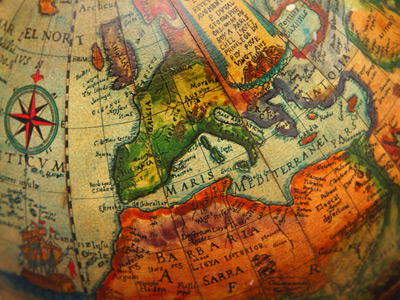
OS Maps: Symbols
This GCSE Geography quiz will test you on symbols found on OS maps. Reading maps involves several different skills - a knowledge of scales, directions and the symbols used by map makers (cartographers) to indicate certain landscape features on maps. Early maps drawn by monks or explorers were like works of art, with landscape features being added as drawings of the actual feature. It was realised that much more information could be placed on a map if simple symbolic representations of the real world were used.
The systematic mapping of Britain was first carried out for military purposes and the maps carry the name of that original Ordnance Survey (the word 'ordnance' means military supplies). Although there are other manufacturers of maps that cover the UK, Ordnance Survey (OS for short) are probably the best known and most often used.
Your geography syllabus requires that you know a variety of symbols used on OS maps. Most of the symbols are the same on the different scale maps but there are a few differences. For your exam, you are most likely to be tested on the ones that are common to all OS maps.
Some of the OS map symbols represent natural landscape features. Together with the isolines known as contour lines, they provide you with a powerful way of knowing what terrain lies in a specific area. There are symbols for cliffs, rocky outcrops, different types of woodland, rivers, streams, lakes and so on. If you are planning your geography fieldwork, knowing these symbols can guide you to the best areas to visit for your particular project.
Other symbols represent human-made features in the landscape. Buildings are marked on as regular shapes coloured with a light brown shade. Roads, tracks, bridleways and public footpaths are also added, each has its own distinct symbol. Some features don't have a pictorial symbol, items like footbriges, post offices, mile stones and town halls for example. These are represented using letters, FB for footbridge, PO for post office and so on.
Symbols are colour coded to a degree. Water features are coloured blue so it is immediately obvious where there is a stream, river, pool or larger body of water. But there are other blue map symbols too. Motorways are marked as blue lines, but it is easy to identify that they are human features rather than natural water features, as they do not have any meanders. Tourist information is added to the maps in blue too, for example viewpoints, camping sites, parking areas and places equipped for picnics. These stand out against the rest of the map making them easy to locate.
Ready for more?
not all...
quizzers. Try to win a coveted spot on our Hall of Fame Page.

















